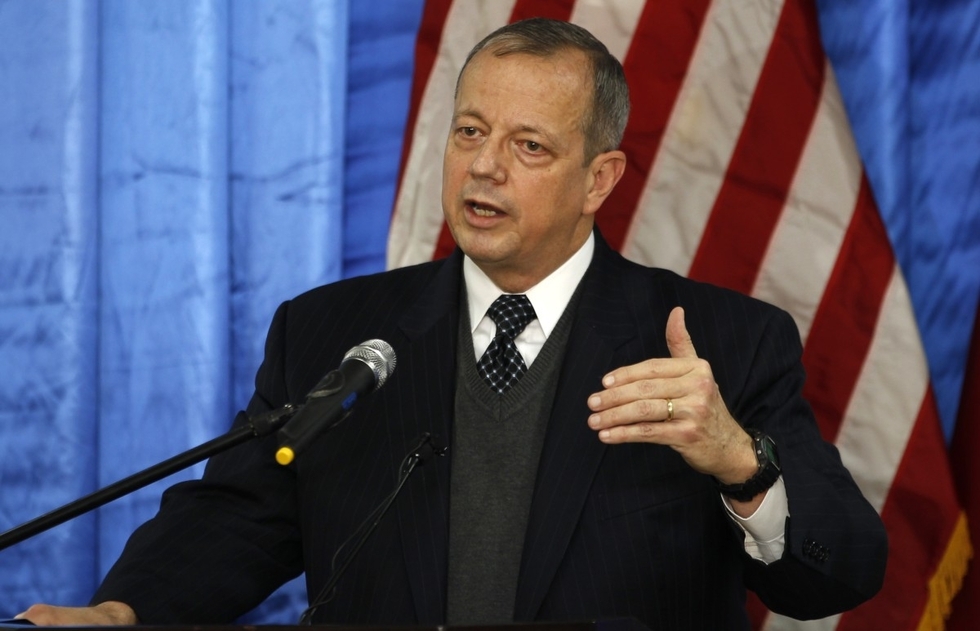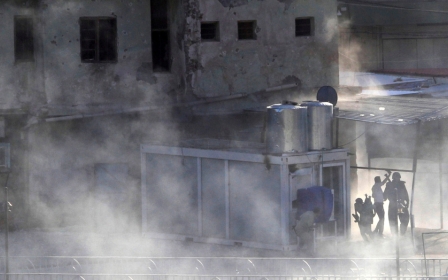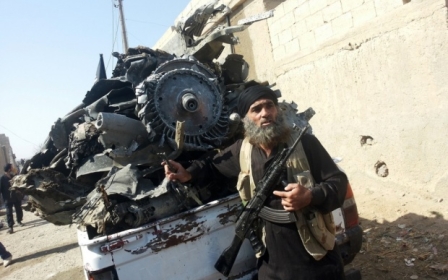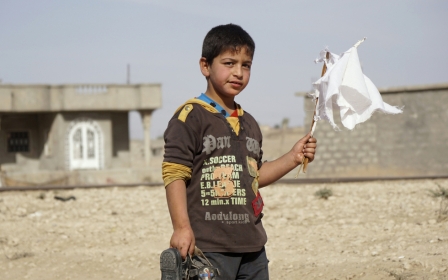Former US general calls for 'Marshall Plan' for the Middle East

A former US general has called for a "Marshall Plan" to rebuild the Middle East to prevent the rise of future Islamic State-style organisations.
“The trajectory we're on is not promising,” said John Allen, former special presidential envoy for the global coalition to counter ISIL (an alternative reference for the Islamic State group), speaking to the BBC Today programme on Saturday.
“We're going to have to think differently about how we're going to solve these issues, otherwise we are going to be condemned to interminable conflict and that should not be what we bequeath our children.”
Allen drew a parallel with the ultimate defeat of the Soviet Union in the Cold War, arguing that it had been massive investment by the West that had won that conflict rather than military might.
"The solution isn't a military solution," he explained.
"The solution is a concerted action by the community of nations to work with the fragile states of the region, or those states which are assailed by social instability, to try to help them to create that social stability within the population in which people feel as though they have hope, they can identify with the central government and they become committed to remaining home and remaining part of that society, rather than being radicalised - feeling as though they have no future in that country and joining these extremist organisations."
His comments came as security forces battled for a second day with Islamic State gunmen who infiltrated the Iraqi city of Kirkuk in a brazen raid that rattled the government as it ramped up its offensive to retake Mosul.
A day after the surprise attack on the Kurdish-controlled city, militant snipers and suspected suicide bombers were still at large, prompting Baghdad to send reinforcements.
Special counter-terrorism and intelligence units were hunting down some of the dozens of IS fighters who stormed public buildings in the early hours of Friday.
"We have 46 dead and 133 wounded, most of them members of the security services, as result of the clashes with Daesh [IS]," an interior ministry brigadier general told AFP.
The toll was confirmed by a source at the Kirkuk health directorate, which called for blood donations to assist with the emergency.
The brigadier general said at least 25 militant attackers had been killed so far and several others wounded, including a Libyan believed to be among the raid's leaders.
The large-scale "inghimasi" attack, a term describing operations in which gunmen, often wearing suicide vests, intend to sow chaos and fight to the death rather than achieve any military goal, caught Kirkuk off guard.
The large city, which lies in an oil-producing region some 240km north of Baghdad, woke up on Friday to find militants roaming the streets of several neighbourhoods.
They used mosque loudspeakers to broadcast praise of their self-proclaimed "caliphate," which has been shrinking steadily since last year.
Distraction from Mosul
One attacker captured by the Kurdish security services on Friday claimed that the Kirkuk raid was planned by IS leader Abu Bakr al-Baghdadi as a diversion from the offensive on Mosul.
"Today's attack was one of caliph Baghdadi's plans to demonstrate that the Islamic State is remaining and expanding, and reduce the pressure on the Mosul front," he said, according to an AFP reporter who saw his initial interrogation.
A Kirkuk-based television journalist was shot dead by an IS sniper on Friday, and the city remained under curfew on Saturday as the security forces battled militants holed up in several buildings.
Iraqi Prime Minister Haider al-Abadi announced late Friday that he was sending reinforcements to Kirkuk, but there was no sign of any major impact on operations around Mosul.
Pentagon chief Ashton Carter arrived in Iraq on Saturday to review the offensive, which his country and around 60 other nations support.
Mosul is much the most populous city in the "caliphate" Baghdadi declared in June 2014, and the operation to recapture it is Iraq's largest in years.
Its loss would deal a huge blow to IS and could mark the end of its days as a land-holding force in Iraq.
New MEE newsletter: Jerusalem Dispatch
Sign up to get the latest insights and analysis on Israel-Palestine, alongside Turkey Unpacked and other MEE newsletters
Middle East Eye delivers independent and unrivalled coverage and analysis of the Middle East, North Africa and beyond. To learn more about republishing this content and the associated fees, please fill out this form. More about MEE can be found here.




